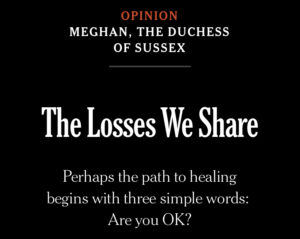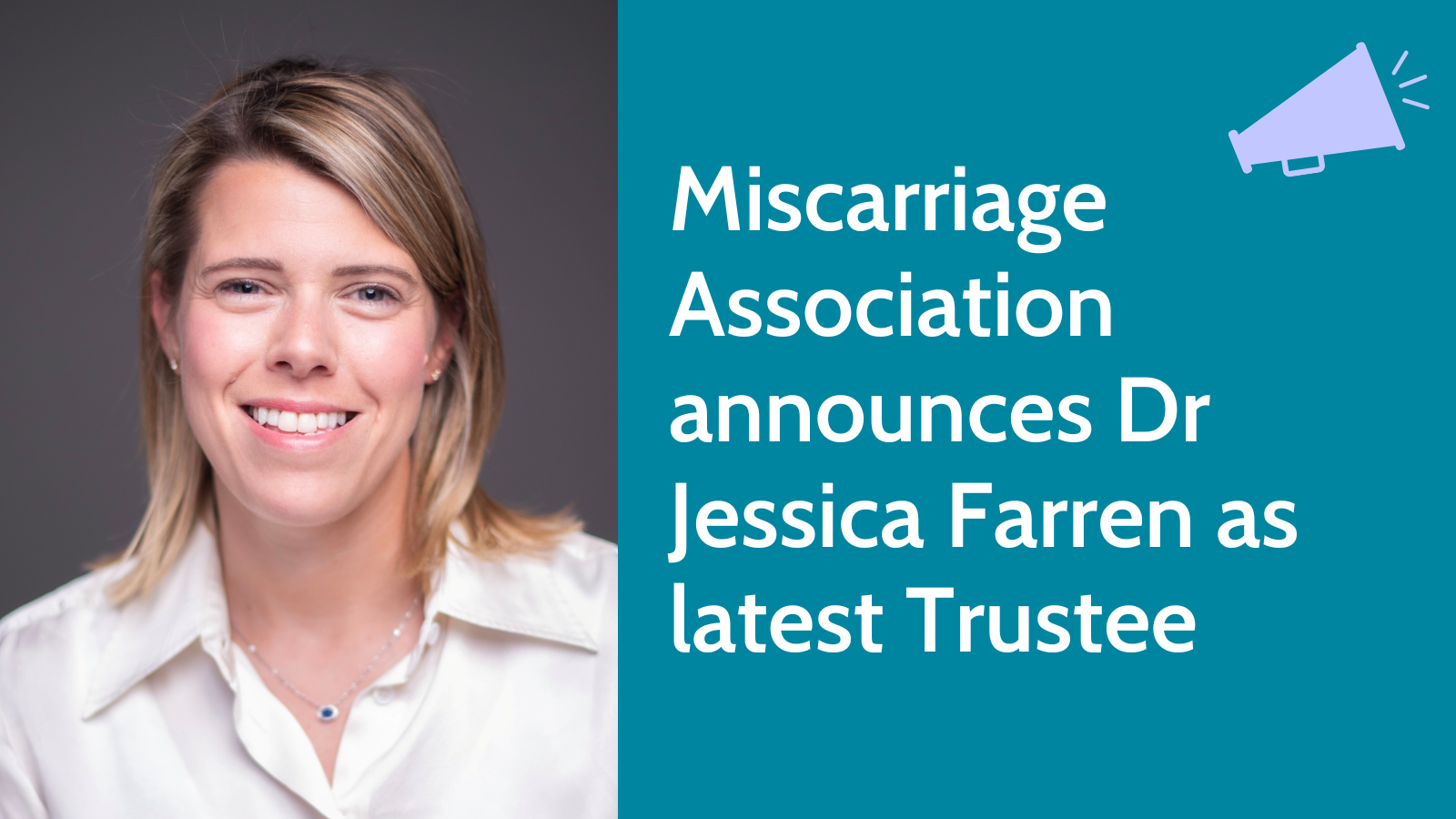The power of sharing
2nd December 2020

When Meghan, the Duchess of Sussex published an article in the New York Times last week, sharing her experience of miscarriage, it sparked a huge wave of media coverage.
As we responded to calls and emails seeking comment, case studies and background information, it wasn’t difficult to note the common themes:
Should high profile people talk publicly about their experience of miscarriage? Should it not be a private matter? Does it help other people or just upset them?
Is there a taboo about miscarriage, a stigma, a sense of shame? If so, why?
Why do people keep pregnancy quiet for the first three months? Is that the right thing to do?
Do men’s feelings get overlooked?
We know that most if not all of you reading this news item will have answered those questions in pretty much the same way that we did. The experience of miscarriage (or ectopic or molar pregnancy) is unique for everyone. So are their thoughts and feelings, whether or not they choose to keep things private or share their experience with others. There are no rights or wrongs, other than to respect each other’s feelings, experiences and ways of coping.
So we’d like to thank the Duchess of Sussex for choosing to share her and her husband’s thoughts and feelings. She’s right when she says that speaking one’s truth gives license for others to do the same. But even if her speaking out doesn’t encourage everyone to share their stories, her words will help validate many people’s feelings of loss and grief and help them feel so much less alone.
So too will the words of all our volunteers who shared their stories with the media: Bláthnaid Scullion, Brett Salako, Gillian MacDonald, Hannah Caulfield, Kathryn Sheppard, Morag Kinghorn, Rebecca Blane, Karen Fisher, Emma Benjamin, Lydia Boyd, Stacey Pinto and Anna Malnutt. Our thanks to all of you, along with those of you who volunteered, were ready to be interviewed but who were not, in the end, called upon.
We noted the following interviews featuring M.A. staff or volunteers:
ITV News, BBC News, BBC online, BBC Scotland, BBC Five Live, BBC Radio 1, BBC Radio 2, BBC Radio 6, BBC Radio Ulster, BBC Radio Essex, BBC Radio Berkshire, BBC Radio Newcastle, LBC, Radio London, New York Times, The Guardian, Independent, Belfast Telegraph, The Express, The Telegraph, Daily Mail, Evening Standard, Evening Standard podcast, Sky News daily podcast, AFP international news agency, France TV News, ABC Australia, Canada TV News, Euronews, Harper’s Bazaar, Glamour, OK!, People magazine (US), Press Association, Associated Press, Reuters, Newschain, Newsview and Yahoo News.
We particularly liked the thoughtfulness of this introduction to Anna Prendergarst’s feature in Glamour magazine:
For both women and men, [miscarriage] can be an incredibly sensitive topic and one that’s not easy to discuss, but that doesn’t mean it isn’t deserving of a conversation. Women that choose to share their stories of pain and grief (however publicly) must not be shamed for doing so. Silencing women’s stories of miscarriage won’t make it go away – but amplifying them can help alleviate feelings of guilt, sadness, confusion and distress that losing a child can provoke.
But it feels right to end with a comment on Instagram that absolutely answers the question as to whether sharing one’s own story can help others:
Hearing about the experiences of other women is the only thing that has helped me to feel less alone in my grief since losing my first baby in June.

